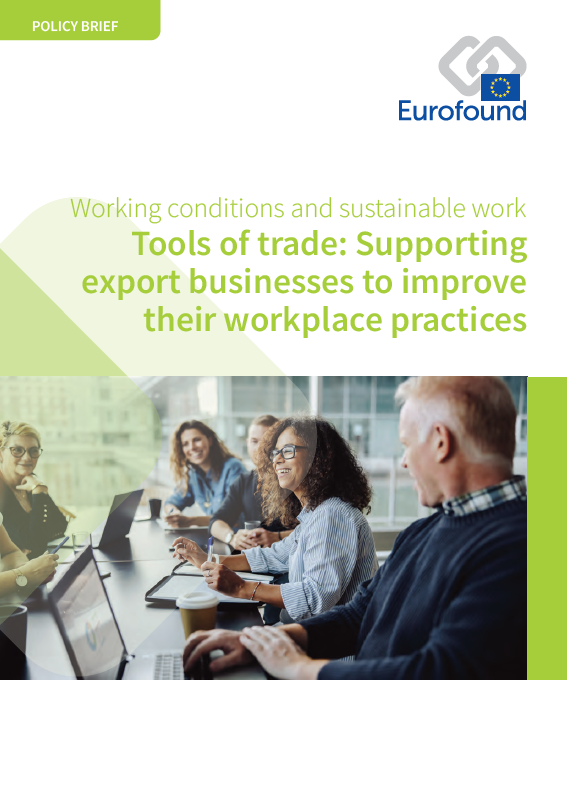
Der Beitrag internationaler Unternehmen zur Wirtschaft und zum Arbeitsmarkt ist allgemein anerkannt, die Politik könnte jedoch noch mehr tun, um die Tätigkeit dieser Unternehmen zu unterstützen. In diesem Kurzbericht wird analysiert, welche betrieblichen Praktiken exportorientierter Unternehmen zu ihrem Erfolg beitragen können. Außerdem identifiziert er die Aspekte ihrer betrieblichen Praxis, die zu einer Win-Win-Situationen führen und sowohl dem Arbeitgeber als auch den Arbeitnehmern zugute kommen. Die Analyse zeigt, dass in den meisten exportorientierten Unternehmen autonome multikulturelle Teams für die Abwicklung der internationalen Geschäfte verantwortlich sind. Es wird erläutert, welche Kompetenzen für diese Teams benötigt werden, und wie Unternehmen ihre Mitarbeiter suchen und weiterbilden. Wie die Ergebnisse zeigen, ist die Teilhabe der Mitarbeiter an Entscheidungsprozessen im Unternehmen ein wichtiger Vermittlungsfaktor bei der Arbeitsorganisation.
Key findings
Only half of EU27 establishments with at least 10 employees exported products or services between 2016 and 2019, underlining the untapped potential of small establishments involved in global supply chains, including young international businesses (‘born globals’).
To encourage the development of export-oriented enterprises, it will be critical for policymakers to step up support for them in dealing with the challenges of international activities – particularly as the EU transitions to a digital and green economy.
A common feature of work organisation in export-oriented establishments are multicultural teams tasked with the management of the international business activities. To support enterprises better in establishing and managing such teams, policymakers can provide forums to exchange practices and lessons learnt and focus on management skills.
High-skilled staff are essential to export-oriented establishments, which need a blend of vocational, technological and administrative skills. Ensuring expertise specifically related to international business activities such as in foreign languages (beyond English), intercultural competences, and knowledge of the institutional and regulatory frameworks in other countries is crucial.
Table and figures
- Table 1: Most common types of internationalisation support at EU and Member State levels
- Figure 1: Export orientation of establishments in the EU27 (% of sales realised through customers in other countries), 2016–2019
- Figure 2: Schematic of elements of workplace practices possibly specific to export-oriented establishments
- Figure 3: Overview of win–win outcomes from workplace practices in export-oriented establishments, along a scale of beneficiaries (employer versus employees)
- Number of pages
-
24
- Reference nº
-
EF21003
- ISBN
-
978-92-897-2189-9
- Catalogue nº
-
TJ-AR-21-003-DE-N
- DOI
-
10.2806/689580
- Permalink
Cite this publication
Eurofound (2021), Tools of trade: Supporting export businesses to improve their workplace practices, European Company Survey 2019 series, Publications Office of the European Union, Luxembourg.
